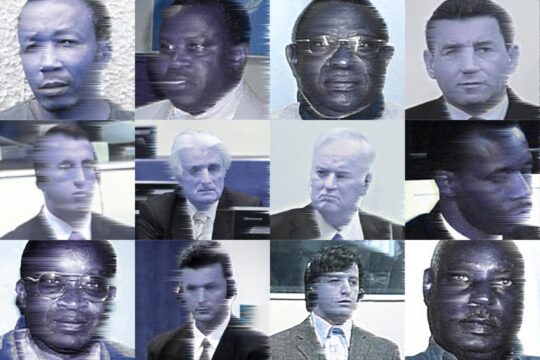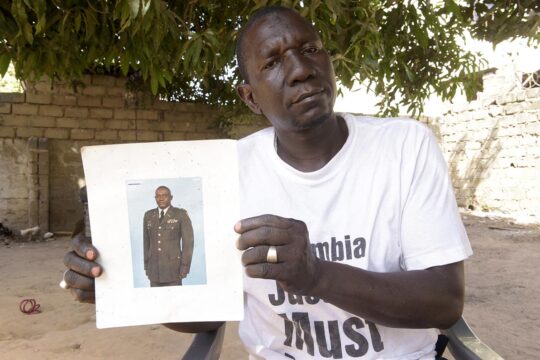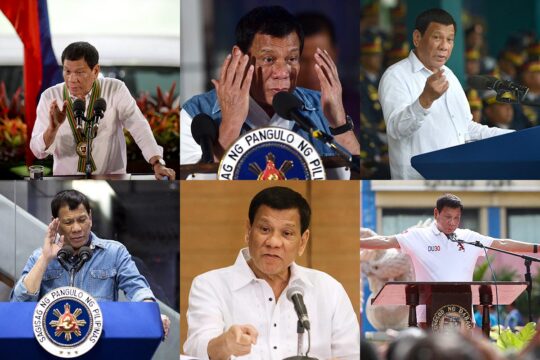“Don’t portray us as a band of beggars coming to demand reparation. […] I think the Europeans have obligations to us, like all the unfortunate, but especially to us for harms that they caused. That is what I call reparation.” These words of Aimé Césaire, renowned Martinican author of “Discourse on Colonialism”, still resonate everywhere in the world 71 years after they were published.
The issue concerns 70% of the world’s population, either as a citizen of a colonizing country or as one of the colonized, according to French history professor Bouda Etemad, author of the book “Crimes and Reparations, the West faced with its colonial past”. The colonized and their descendants, he writes, have the right to demand reparation from the European powers for the harms these States committed over a period of 500 years, from the “discovery” of America by Christopher Colombus to independence in the second half of the 20th century. Forced labour, slavery, persecution, executions, extermination, bombardments, looting and forced cultural assimilation: the list is long of violent abuses that accompanied colonization in Africa, the Near East, Asia, the Americas, Oceania and northern Europe.
Our special focus concentrates on the period known as the “second colonial empire” which from 1815 marked the new expansionism of the Western powers until the wave of independence in the 1960’s and 1970’s.
Colonization, a “crime against humanity”
In France, when Emmanuel Macron, then a presidential candidate, declared on February 14, 2017 in Algiers that colonization "is a crime against humanity, a real barbarity and part of this past that we must look in the face by also apologizing to those towards whom we committed these actions", he aroused the ire of the right and the far right, who accused him of sullying or betraying his country.
French political icon and patriot Georges Clémenceau, nicknamed "the Tiger" for his fierce attacks as an opponent and then for strength of his character as head of government at the end of the First World War, had already said it 130 years ago. On July 28, 1885, while European nations shared Africa among themselves, when his political adversary Jules Ferry invoked before parliament the "duty" of the "superior races" to "civilize the inferior races", Clémenceau replied: "Superior races! Inferior races! (...) Look at the history of the conquest of these peoples that you call barbaric and you will see violence, every crime unleashed, oppression, blood flowing freely, the weak oppressed, tyrannized by the victor! That is the history of your civilization! (...) How many atrocious, appalling crimes have been committed in the name of justice and civilization? Not to mention the vices that Europeans brought with them: alcohol, opium that they spread and imposed if it pleased them. And it is such a system that you are trying to justify in France, in the land of human rights!" He also added that: “The conquest you advocate is the pure and simple abuse of force (...). It is not what is right, it is the negation of it."
Demands for truth and reparations
In recent years, as men and women in former colonial countries entered politics after the fall of colonial empires, and as formerly colonized peoples have become more vocal, the demands for truth and reparation have grown. The veil of silence is being torn apart. Scandinavian countries are working to establish the truth about the violence suffered by their indigenous people, inspired by the example of Canada. Belgium and Australia have set up truth commissions, while France is considering it and Joe Biden's United States seems more willing to join this historical rendez-vous. Everything indicates that the colonial past has become the present of transitional justice, and that this groundswell is causing ripples on all continents.
And so while demands for reparations by victims and their descendants are not new, there are now starting to be some responses. The need to render justice to the enslaved and/or colonized populations has led to a search for ways to "repair" the wrongs done. Louis Georges Tin, president of the Council of Black Associations of France (Conseil représentatif des associations noires de France), defines them as "legal, moral, material, cultural or symbolic mechanisms set up to compensate a social group or its descendants, individually or collectively, after large-scale damage".
This cannot happen without the first, still hesitant step of official recognition of harms caused. On 26 March 2019, the European Parliament adopted a resolution on the “fundamental rights of people of African descent in Europe”, recognising that “the racism and discrimination experienced by people of African descent is structural” and stems from “historically repressive structures of colonialism and the transatlantic slave trade”. On 17 June 2020 after the murder of George Floyd in the United States, the UN High Commissioner for Human Rights, former Chilean president Michelle Bachelet, said during a debate on racism and police violence that she was favourable to “reparations”. “Behind today’s racial violence, systemic racism, and discriminatory policing lies the failure to acknowledge and confront the legacy of the slave trade and colonialism,” she said. “We also need to make amends for centuries of violence and discrimination, including through formal apologies, truth-telling processes, and reparations in various forms.”
In both the North and the South, there are more and more initiatives to shed light on this violent past, to make financial reparations, to return cultural property and human remains, or for former colonizing countries to express official apologies. This Justice Info world map presents, in a non-exhaustive way, the official mechanisms of truth and reparations over the last 20 years that have been initiated by ex-colonizers with regard to their former colonies.






